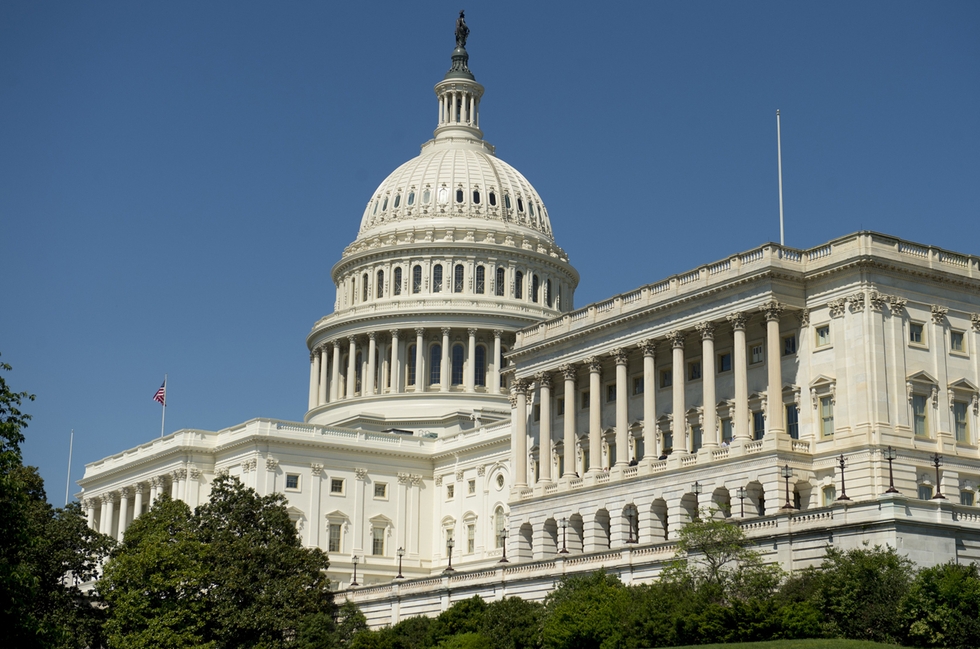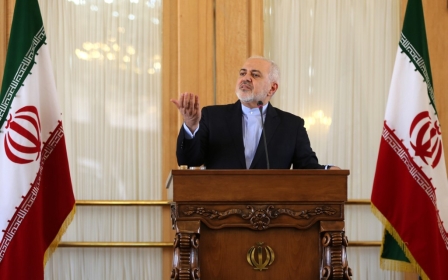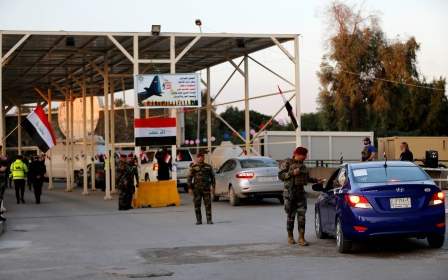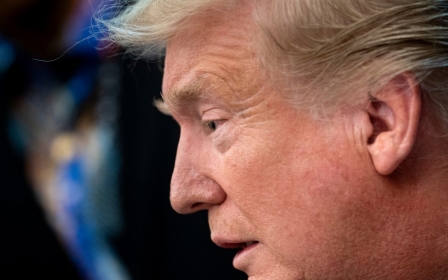US briefing on Iran fails to persuade Democrats, who criticise Trump policies

US President Donald Trump's administration has sought to persuade American lawmakers that Iran poses a threat to the United States, amid an uptick in tensions between the two countries this month.
But the administration's arguments, delivered during a closed-door briefing in Congress on Tuesday, failed to convince several Democrats.
"We still don't know what the administration's objectives are," said Democratic Congressman Adam Smith, who is chairman of the House Armed Services Committee and attended the briefing.
While Smith said the situation remains fraught, he said he "does not anticipate" the use of US military force against Iran.
"What our 'maximum pressure' campaign has done in terms of achieving our objections, I have not seen," he added.
US Secretary of State Mike Pompeo, Joint Chiefs of Staff Chairman General Joseph Dunford and Acting Secretary of Defence Patrick Shanahan led Tuesday's intelligence briefing.
It came after lawmakers, including several of Trump's fellow Republicans, clamoured for weeks for more information about escalating tensions with Iran.
The Trump administration recently accused the Iranian government of pursuing aggressive actions against American and allied troops in the Middle East, as Washington has pushed a "maximum pressure campaign" against Tehran.
The US sent a naval fleet to the Gulf in an effort to "send a message" to the Iranians, and imposed new sanctions on Iran's metals industry.
In response, Iran said it would pull out of parts of the 2015 international deal to curb Iran's nuclear programme.
The Trump administration said the tightened sanctions were intended to push Iran to make concessions beyond the terms of that agreement, which the president withdrew the United States from a year ago.
Last week, Washington also pulled some diplomatic staff from its embassy in Baghdad following attacks on four oil tankers in the Gulf and the bombing of a Saudi pipeline - the latter claimed by Iran-aligned Yemeni rebels.
Republican Senator Lindsey Graham said that top administration officials told senators in the briefing that the attacks were directed by the Iranian government and Ayatollah Ali Khamenei, the Supreme Leader of Iran.
"They explained to us how the Iranian threat streams were different than in the past, that the attack on the ships and the pipeline was coordinated and directed by the Iranian government, the ayatollah," Graham told reporters.
US not going to war, officials say
But despite authorising all these actions, Trump has insisted he is not seeking war with Iran - a message that was echoed by senior Republicans after the intelligence briefing on Tuesday.
"There is no intention to go to war in the region. This is a deterrent operation to stop Iran's escalation and aggression," Representative Mike McCaul, the ranking Republican on the House Foreign Affairs Committee, told reporters.
'This is about deterrence, not about war. We are not about going to war'
- Acting US Secretary of Defence Patrick Shanahan
Shanahan said the recent decision to send American troops to the Gulf has "deterred attacks" by Iran, without divulging further information.
"We have deterred attacks based on our reposturing of assets - deterred attacks against American forces. Our biggest focus at this point is to prevent Iranian miscalculation," Shanahan told reporters on Capitol Hill after the closed-door meetings.
"This is about deterrence, not about war. We are not about going to war," he added.
Over the past few weeks, experts and observers have criticised the US for failing to provide substantial evidence to back up its claims that Iran poses an increased threat to American forces in the Middle East.
And, after the briefing on Tuesday, some Democrats also accused administration officials of twisting the intelligence to make the case for an aggressive response to any Iranian actions.
"In my opinion, there was not any information there that pointed to any reason why we should be engaging in talk of war with Iran," said Democrat Ruben Gallego, who sits on the House Armed Services Committee.
Tensions remain high
The situation between the two countries remains charged, however, with a Reuters/Ipsos public opinion poll released on Tuesday finding that half of all Americans believe the US will go to war with Iran "within the next few years".
Nearly half - 49 percent - of all Americans said they disapproved of how Trump is handling US relations with Iran, the poll found, compared to 39 percent who said they approve of the US president's policies.
Meanwhile, Iranian President Hassan Rouhani on Tuesday rejected the prospect of talks with the US, after Trump said this week that Iran would call and ask for negotiations "if and when they are ever ready".
For its part, Iraq said it will send delegations to Washington and Tehran to help "halt tension", Iraqi Prime Minister Adel Abdul Mahdi said.
The country has been caught in the middle of the recent escalation between Washington and Tehran, as Iraq has long been a battlefield for a proxy clash between the two countries' competing interests.
No Iraqi groups are in favour of a war between the US and Iran, Mahdi said, only days after a rocket was fired near the US Embassy in Baghdad.
A previously unknown armed group claimed responsibility for the attack in the Green Zone of the Iraqi capital on Sunday, claiming it was an act of retaliation for Trump's recent pardon of a US soldier who was convicted of killing an Iraqi detainee in 2009.
Middle East Eye propose une couverture et une analyse indépendantes et incomparables du Moyen-Orient, de l’Afrique du Nord et d’autres régions du monde. Pour en savoir plus sur la reprise de ce contenu et les frais qui s’appliquent, veuillez remplir ce formulaire [en anglais]. Pour en savoir plus sur MEE, cliquez ici [en anglais].





